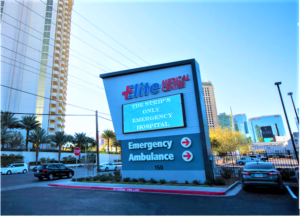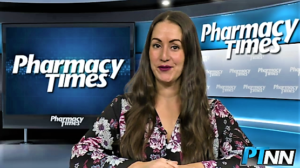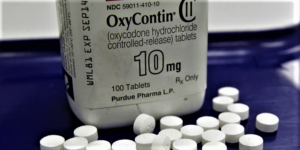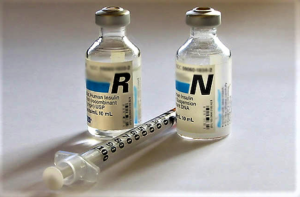- Emergency room off Las Vegas Strip makes waves with new business model (reviewjournal.com)
Just like any full-service emergency room, Elite Medical Center treats a range of urgent medical problems, from headaches to heart attacks. But unlike at the other ERs in Southern Nevada, you’ll generally pay more for your care...That’s because the facility doesn’t contract with any insurer. So if you break a bone or your child has an earache and you go there, you’ll be paying for out-of-network care...Elite is licensed as a hospital by the state, but experts say it is operating similarly to free-standing emergency rooms that have become common recently in other states. It is the only unaccredited hospital in Clark County that provides emergency care but doesn’t contract with insurers...There’s no license for a free-standing ER in Nevada, though hospitals are allowed to open satellite emergency rooms that provide care at other locations....State law doesn’t mandate that these facilities be accredited by the federal Centers for Medicare or Medicaid Services or accept any insurance, private or public...“We don’t think that’s appropriate,” said Bill Welch, president and CEO of the Nevada Hospital Association, which represents UMC and 65 other medical facilities statewide. “We think that Elite Medical Center, if they want to operate as a hospital in the state, that they should operate as a CMS-certified center and they should be accredited and Medicare-participating. Without those things, we’re concerned.”
- January 25 Pharmacy Week in Review: Drug Marketing May be Linked to Opioid Deaths, Seasonal Flu Activity Remains Elevated (pharmacytimes.com)
Nicole Grassano, PTNN, Pharmacy Week in Review, this weekly video program provides our readers with an in-depth review of the latest news, product approvals, FDA rulings and more.
- Study Shows Significant Number Of Antibiotic Prescriptions Are Not Necessary (techtimes.com)Appropriateness of outpatient antibiotic prescribing among privately insured US patients: ICD-10-CM based cross sectional study (bmj.com)
The world is experiencing a superbug problem: strains of bacteria are rapidly becoming resistant to modern drugs, making them harder to treat...However, a new study found that a significant number of antibiotics prescription are not appropriate. Researchers warned that their findings suggest that experts might have underestimated the rate of overprescription, which gives rise to superbugs...The analysis revealed that 23.2 percent of the prescribed antibiotics were not appropriate, 35.5 percent were potentially appropriate, and 28.5 percent were not associated with a diagnosis which might also mean that they were inappropriate...Roughly 2.2 million of the 14.6 million adults involved in the study had at least one antibiotic prescription that is unnecessary to treat their ailments...
- Study links opioid epidemic to painkiller marketing (reuters.com)Association of Pharmaceutical Industry Marketing of Opioid Products With Mortality From Opioid-Related Overdoses (jamanetwork.com)
Researchers are reporting a link between doctor-targeted marketing of opioid products and the increase in U.S. deaths from overdoses...In a county-by-county analysis, they found that when drug companies increased their opioid marketing budgets by just $5.29 per 1,000 population, the number of opioid prescriptions written by doctors went up by 82 percent and the opioid death rate was 9 percent higher a year later...“It really doesn’t take much marketing to increase the number of deaths,” lead author Dr. Scott Hadland...Jordan Trecki of the U.S. Drug Enforcement Administration warns that the new analysis only addresses part of the problem...“As the opioid epidemic grows, it is evolving beyond prescription medications and heroin to involve illicitly produced fentanyl, fentanyl-related substances and other opioids, either alone or in combination,”...
- The digital drug: Internet addiction spawns U.S. treatment programs (reuters.com)
The internet, while not officially recognized as an addictive substance, similarly hijacks the brain's reward system by triggering the release of pleasure-inducing chemicals and is accessible from an early age..."The brain really doesn't care what it is, whether I pour it down my throat or put it in my nose or see it with my eyes or do it with my hands,"..."A lot of the same neurochemicals in the brain are occurring."...Even so, recovering from internet addiction is different from other addictions because it is not about "getting sober,"...The internet has become inevitable and essential in schools, at home and in the workplace...It's always there...IS IT A REAL DISORDER?...Medical experts have begun taking internet addiction more seriously.
- This Week in Managed Care: January 25, 2019 (ajmc.com)
Laura Joszt, Managing Editor at The American Journal of Managed Care. Welcome to This Week in Managed Care from the Managed Markets News Network
- Swiss team develop ‘microswimmer’ robot to deliver drugs through the body (reuters.com)
A tiny sliver of elastic material swims along inside a narrow tube, coiling up and changing shape in response to the thickness of fluid and the contours of the tube around it as it moves towards its goal...The miniature robot - the bacteria-inspired brainchild of a team of scientists in Switzerland seeking new methods to deliver drugs to diseased tissue - is designed to wend its way through blood vessels and other systems in the body...The tiny soft microswimmer robot they have developed is a few millimeters in length and made using a folding technique similar to the Japanese art of origami, helping it adapt to the environment around it...
- Microsoft, Walgreens deal brings promise of reducing healthcare costs (pharmaceutical-technology.com)
A seven-year venture between tech giant Microsoft Corp and the US pharmacy retail chain Walgreens Boots Alliance is expected to bring competition to the healthcare sector on the back of lower costs...In a deal signed recently – which will see Walgreens use Azure, Microsoft’s cloud-computing platform – the companies signalled their common ambition to take on Amazon.com Inc, another tech giant disrupting the healthcare space...Walgreens will roll out 12 new “digital health corners” for its US stores this year, which have been designed to promote the sale of health-related devices and to help patients manage chronic diseases...The deal will help Walgreens accumulate personalised data about patients’ health, which it said will allow pharmacists to give customised nutrition and wellness solutions using digital devices and apps as well as in-store expert advice...
- U.S. insulin costs per patient nearly doubled from 2012 to 2016: study (reuters.com)
The cost of insulin for treating type 1 diabetes in the United States nearly doubled over a five-year period, underscoring a national outcry over rising drug prices...A person with type 1 diabetes incurred annual insulin costs of $5,705, on average, in 2016. The average cost was roughly half that at $2,864 per patient in 2012...the jump in spending was driven primarily by higher insulin prices overall and, to a lesser extent, a shift toward more expensive insulin products. Average daily insulin use rose only 3 percent over the same five-year period...The findings come amid new outrage over the cost of prescription drugs in the United States, the highest in the world...
- Computerized method helps better protect pharma patents (news-medical.net)
Routes to making life-saving medications and other pharmaceutical compounds are among the most carefully protected trade secrets in global industry. Building on recent work programming computers to identify synthetic pathways leading to pharmaceutically complex molecules, researchers in Poland and South Korea have unveiled computerized methods to suggest only synthetic strategies that bypass patent-protected aspects of essential drugs...When we started this project, I was somewhat skeptical that the machine would find any viable synthetic alternatives--after all, these are blockbuster drugs worth gazillions of dollars, and I was sure that the respective companies had covered the patent space so densely that no loopholes remained. It turns out that the loopholes are there, and we can find new retrosynthetic pathways that circumvent the patents entirely."( Bartosz Grzybowski )...the researchers hope that their software will aid pharmaceutical companies in better protecting their intellectual property and, simultaneously, will help accelerate research and development in organic chemistry by supplying synthetic routes that differ from standard approaches.










